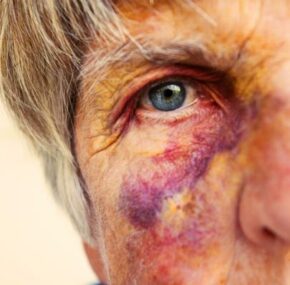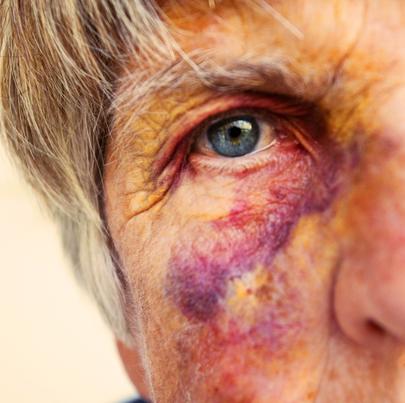Elder abuse comes in a number of forms. Most people who think of the behavior in an adult care facility will likely call to mind a staff member harming a resident. However, as recent reports show, residents are harming their peers – and it is more common than one might think.
As any Chicago nursing home abuse attorney would know, all forms of elder abuse are inappropriate and often illegal. Family members can help their loved ones by recognizing the signs often associated with the phenomenon.

Defining elder abuse
The U.S. Department of Health and Human Services’ Administration for Community Living points out that elder abuse is any kind of harm inflicted upon a vulnerable adult, whether it is intentional or negligent. The abuse can manifest in several ways, including the following:
- Emotional: A caregiver or other person may cause distress or mental anguish through threatening or humiliating the person or engaging in other verbal and nonverbal behavior.
- Physical: Someone may cause physical injuries through hitting or even improperly restraining the senior.
- Sexual: Any non-consensual sexual contact is considered abuse.
- Exploitation: Someone who illegally misuses or takes a senior’s property or money has committed abuse.
The Illinois Adult Protective Services Act protects the elderly through criminalizing these forms of abuse. Unfortunately, incidents of elder abuse often go unreported or even unnoticed.
Who commits elder abuse?
Just about anyone can harm a senior, though the areas of typical concern involve family members and caregivers. A relative may try to take advantage of an elderly person in order to financially benefit. A staff worker in a nursing home could neglect a patient, leading to potentially both physical and mental illness.
New evidence also points out that there is resident-to-resident abuse occurring in adult care facilities. In fact, according to a study from the Cornell University-Weill Cornell Medical College, there is an abundance of the behavior, and it is often underreported.
Exploring resident-to-resident abuse
The study reviewed 10 facilities in New York and found that roughly one in five residents experienced at least one unfavorable encounter with another resident over a four-week period. To gather information, researchers observed resident interactions, conducted interviews and had staff and residents fill out a questionnaire.
The findings note that 19.8 percent of nursing home residents experienced disruptive, hostile or inappropriate behavior. The incidents involved a range of activities, such as 16 percent of people experiencing verbal altercations in which one resident screamed or cursed at another. Nearly 6 percent of residents had physical encounters in which kicking, biting or hitting was involved. And 1.3 percent of the residents suffered sexual abuse, which ranged from someone exposing genitals to physical touching.
Who is involved?
The Cornell study found that certain types of residents are more likely to be involved in these types of incidents than others. The study did not evaluate differences between perpetrators and victims. However, people who have slight but not severe cognitive impairments and are physically able to navigate the facility are the ones who are more likely to participate in resident-to-resident abuse. According to one researcher, an underlying mood disorder can result in aggressive behavior. Further, people involved in these incidents are reportedly younger.
Dementia and sexual assault
According to the National Consumer Voice for Quality Long-Term Care, there is a strong link between dementia and sexual abuse in nursing homes. Certain conditions, such as Alzheimer’s, or medications can cause dementia in patients who might unintentionally cause sexual or other harm to fellow residents.
As a Chicago nursing home abuse attorney would know, federal laws tend to classify these events as accidents, and not criminal events, because there is often a lack of willful intent. Therefore, statistics related to sexual abuse in nursing homes are often misleading, the NCVQLTC notes. Additionally, it could lead to poorer protection of residents who suffer the abuse.
Spot the signs
One of the most important things that family members can do to protect their loved ones from elder abuse is to learn what the symptoms are. The Administration on Aging points out that depending on the type of abuse, the signs may manifest in a number of different ways. For example, physical abuse may be the easiest to identify. It often results in unexplained bruises, broken bones, welts and burns.
Emotional abuse may not be as visually noticeable. Someone who suffers from this kind of harm may exhibit a change in behavior, such as avoiding normal activities or interaction with others. Often, these changes appear suddenly and are uncharacteristic of the victim.
A senior who has experienced sexual abuse may have an unexplained sexually transmitted disease or a pelvic injury. It is also possible that a caregiver or loved one will find torn, stained or bloody undergarments. In some cases, the victim will suffer from panic attacks or other symptoms associated with post-traumatic stress disorder.
Taking action
As soon as any of these symptoms are spotted, it is important for a caregiver or loved one to report it. The National Center on Elder Abuse states that any immediate danger should prompt a phone call to 911. Otherwise, the nearest Adult Protective Services program should be contacted.
Investigators will then be able to look into the situation to determine what kind of abuse has taken place and who is responsible. It may well be that another resident has caused the damage or that staff members have committed the wrongdoing.
Additionally, anyone who has suffered or has a loved one exhibiting these symptoms should also consult with a Chicago nursing home abuse attorney.







